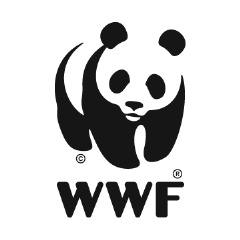On One-Year Anniversary of China’s Ivory Ban, New Campaign Targets Travelers Abroad
More than one year after China implemented a full ban on commercial ivory sales, several surveys indicate Chinese travelers are still purchasing ivory at souvenir shops in neighboring countries. To counter this trend, China Customs and the National Forestry and Grasslands Administration (NFGA) are partnering with WildAid and World Wildlife Fund (WWF) on a national campaign to remind travelers that their “souvenirs could be contraband.”
In the new public awareness campaign, popular Chinese actor Huang Xuan, dressed as a Customs officer, informs travelers that purchasing wildlife products is driving certain species toward extinction and reminds them that it is illegal to bring ivory into China, even as souvenirs.
The campaign comes as part of a three-year initiative by China Customs to tighten security at borders and halt imports of illegal wildlife products. Since 2018, Customs has made two trips to Africa to extradite Chinese nationals involved in wildlife smuggling.
Since domestic sales of ivory were banned in China, there’s been a clear decline in illegal sales and demand for ivory on the mainland, according to a survey released by TRAFFIC and WWF in September 2018. Twelve percent of respondents claim to have purchased ivory in the past 6 months compared to 26 percent of respondents who reported doing so in a similar 2017 pre-ban survey, a 54% decline.
Yet the same TRAFFIC and WWF study shows that more than 18 percent of outbound travelers bought ivory products on trips abroad, with Thailand and Hong Kong being the top two markets. Other destinations popular with Chinese travelers are also of concern. In Laos, more outlets are selling new ivory items to meet Chinese demand, according to a Save the Elephants investigation, with nearly all vendors in the market being Chinese and prices quoted in Chinese yuan. And just this month, more than 73 kilograms of ivory products were confiscated from a souvenir shop in Laos. The ivory products were hidden in secret drawers under the shop’s counters.
The new public awareness campaign will appear on public media and customs entry and exit points at airports, train stations, and border crossings, particularly where China borders Myanmar, Laos, and Vietnam.
“WildAid brings decades of experience delivering high-impact media campaigns to protect wildlife to this partnership,” CEO of WildAid Peter Knights said. “We’ve seen how these campaigns generate results in increased awareness and reduced consumption of wildlife products such as shark fin. This message with Huang Xuan will reach tens of millions of people, and will help build on the recent momentum to end the devastation caused by ivory consumption"
“WWF’s goal is to reach Chinese travelers who have the means to buy ivory and access to it in popular destinations where ivory can still be found,” said Jan Vertefeuille, senior director for advocacy at WWF. “This campaign is the kind of collaboration we need between government agencies and conservation groups to get the word out that ivory is illegal to bring home and it’s not socially acceptable.”
( Press Release Image: https://photos.webwire.com/prmedia/7/234602/234602-1.png )
WebWireID234602
This news content was configured by WebWire editorial staff. Linking is permitted.
News Release Distribution and Press Release Distribution Services Provided by WebWire.
